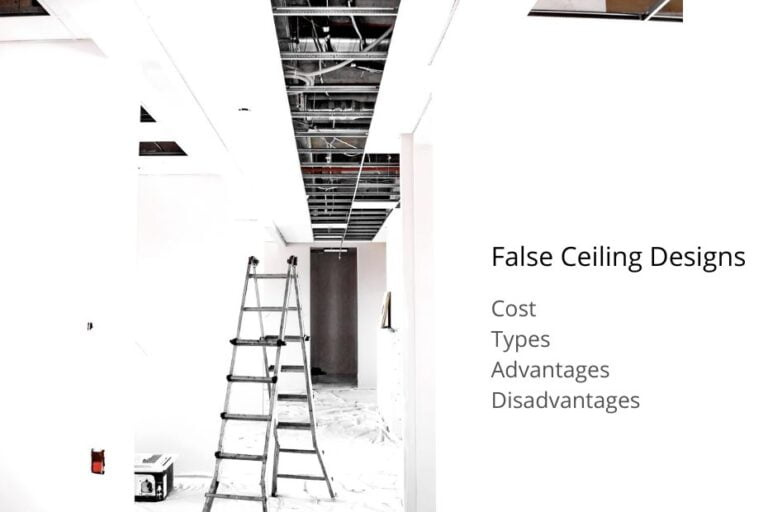HOA’s Backyard, Landscaping, Parking, Common area, Pool & Special assessment rules
If you are planning to buy or live in a property that is part of a homeowners association (HOA), you might have some questions about what HOA rules are and how they affect you. HOA rules are the policies and regulations that govern the common areas, amenities, and behaviour of the members of an HOA community. They are designed to maintain the appearance, value, and harmony of the neighbourhood, but they can also impose some restrictions and obligations on the homeowners.
In this blog post, we will cover some of the most common HOA rules and topics that you should be aware of before buying or living in an HOA property. These include:
- HOA backyard rules
- Can an HOA change rules after purchase
- Swimming pool rules and regulations for HOA
- Can HOA change rules without voting
- How to get around HOA fence rules
- What happens if HOA violates their own rules
- HOA common area rules
- HOA special assessment rules
- HOA parking rules
- HOA landscaping rules
- HOA pool rules
- What happens if you don’t follow HOA rules
HOA Backyard Rules
One of the most common areas of HOA rules is the backyard. Depending on the HOA, you may have some limitations on what you can do with your backyard, such as:
- The size, type, and location of fences, sheds, decks, patios, pools, hot tubs, playgrounds, and other structures
- The color, style, and material of exterior paint, siding, roofing, doors, windows, and other features
- The type, height, and maintenance of plants, trees, grass, and other landscaping elements
- The use of outdoor furniture, grills, fire pits, hammocks, flags, signs, and other decorations
- The storage of trash cans, recycling bins, compost bins, bicycles, toys, tools, and other items
- The keeping of pets, livestock, poultry, bees, and other animals
- The noise level, hours, and activities of parties, gatherings, music, and other entertainment
Before you make any changes or additions to your backyard, you should always check with your HOA rules and obtain the necessary approval from the HOA board or committee. Otherwise, you may face fines, liens, lawsuits, or even forced removal of your backyard improvements.
HOA Landscaping Rules
HOA landscaping rules are the rules that regulate the landscaping of the front and back yards of the properties in the HOA community. HOA landscaping rules are intended to maintain the curb appeal, value, and harmony of the neighborhood, but they can also impose some limitations and obligations on the homeowners. Some of the common HOA landscaping rules are:
- The size, type, and location of plants, trees, grass, and other landscaping elements
- The color, style, and material of fences, walls, gates, and other structures
- The use of outdoor furniture, lighting, ornaments, and other decorations
- The watering and irrigation schedule and system of the landscaping
- The maintenance and trimming responsibility and frequency of the landscaping
- The pest and weed control methods and products of the landscaping
- The approval and inspection process and criteria of the landscaping
- The enforcement and penalties for violating the landscaping rules
You should always check and follow the HOA landscaping rules, as they are meant to protect your environment and health, as well as the beauty and condition of the landscaping. If you want to make any changes or additions to your landscaping, you should always obtain the necessary approval from the HOA board or committee. Otherwise, you may face fines, liens, lawsuits, or even forced removal of your landscaping improvements.
HOA Parking Rules
HOA parking rules are the rules that regulate the parking of vehicles in the HOA community, such as cars, trucks, motorcycles, bicycles, trailers, RVs, and boats. HOA parking rules are designed to ensure the safety, order, and appearance of the parking areas, as well as the convenience and accessibility of the residents. Some of the common HOA parking rules are:
- The allocation and assignment of parking spaces and permits
- The restriction and prohibition of parking in certain areas or times
- The registration and identification of vehicles and owners
- The maintenance and appearance standards of vehicles
- The towing and impounding policy and procedure of vehicles
- The enforcement and fines for violating the parking rules
You should always comply with the HOA parking rules, as they are meant to protect your property and rights, as well as the quality and management of the parking areas. If you have any questions or issues about the parking rules, you should contact your HOA board or committee.
HOA Common Area Rules
HOA common area rules are the rules that apply to the shared spaces and facilities in the HOA community, such as the clubhouse, the gym, the park, the playground, the tennis court, and the parking lot. HOA common area rules are intended to ensure the proper use, maintenance, and security of the common areas, as well as the safety and enjoyment of the residents. Some of the common HOA common area rules are:
- The reservation and fee requirements for using the common areas
- The access and security codes or keys for entering the common areas
- The guest and visitor policies for the common areas
- The cleanliness and damage responsibility for the common areas
- The prohibition of smoking, vaping, drugs, alcohol, weapons, and other items in the common areas
- The etiquette and behavior standards for the common areas
- The noise level and hours of operation of the common areas
- The enforcement and penalties for violating the common area rules
You should always respect and follow the HOA common area rules, as they are meant to protect your rights and interests, as well as the value and condition of the common areas. If you have any questions or suggestions about the common area rules, you should contact your HOA board or committee.
Swimming Pool Rules and Regulations for HOA
If your HOA community has a swimming pool, you should be aware of the rules and regulations that apply to it. Swimming pool rules and regulations for HOA are usually designed to ensure the safety, cleanliness, and enjoyment of the pool for all the residents. Some of the common swimming pool rules and regulations for HOA are:
- The hours and seasons of operation of the pool
- The maximum capacity and occupancy of the pool
- The age and supervision requirements for children and guests
- The attire and hygiene standards for pool users
- The prohibition of alcohol, glass, food, pets, and other items in the pool area
- The use of pool furniture, equipment, and amenities
- The responsibility for cleaning up and reporting any accidents, damages, or problems in the pool area
- The enforcement and penalties for violating the pool rules and regulations
You should always follow the swimming pool rules and regulations for HOA, as they are meant to protect your health and safety, as well as the quality and maintenance of the pool. If you have any questions or suggestions about the pool rules and regulations, you should contact your HOA board or committee.
How to Get Around HOA Fence Rules
If you want to install or modify a fence in your backyard, you may encounter some HOA fence rules that limit your options. HOA fence rules may regulate the height, style, color, material, and location of your fence, as well as the approval process and the maintenance responsibility. If you are unhappy with the HOA fence rules, you may wonder how to get around them.
One way to get around HOA fence rules is to request a variance or an exception from the HOA board or committee. A variance or an exception is a special permission that allows you to deviate from the HOA fence rules for a specific reason, such as a medical condition, a security concern, or a personal preference. To request a variance or an exception, you need to submit a written application to the HOA board or committee, along with any supporting documents, such as a doctor’s note, a police report, or a photo of your desired fence. You also need to explain why you need the variance or exception, how it will benefit you and the community, and how it will not harm or inconvenience your neighbors. The HOA board or committee will review your application and decide whether to grant or deny your request.
Another way to get around HOA fence rules is to challenge or dispute them. If you believe that the HOA fence rules are unreasonable, unfair, or illegal, you can try to contest them through various means, such as:
- Negotiating or compromising with the HOA board or committee
- Organizing or joining a petition or a lawsuit against the HOA
- Seeking mediation or arbitration with the HOA
- Filing a complaint or a report with the state or federal agency that oversees HOAs
However, you should be aware that challenging or disputing HOA fence rules can be costly, time-consuming, and stressful, and it may damage your relationship with the HOA and your neighbors. You should also be prepared to face the consequences if you lose the challenge or dispute, such as fines, liens, lawsuits, or even foreclosure.
HOA Special Assessment Rules
HOA special assessment rules are the rules that govern the collection and use of extra fees from the homeowners for unexpected or large expenses that are not covered by the regular HOA dues. HOA special assessment rules are usually specified in the CC&Rs and bylaws, and they vary depending on the HOA. Some of the common HOA special assessment rules are:
- The purpose and amount of the special assessment
- The approval and notification process of the special assessment
- The payment and collection method and schedule of the special assessment
- The consequences and remedies for non-payment of the special assessment
- The refund and cancellation policy of the special assessment
You should always pay attention to the HOA special assessment rules, as they can have a significant impact on your finances and budget. If you are unhappy or unclear about the special assessment rules, you should communicate with your HOA board or committee, and try to understand the rationale and necessity of the special assessment. You can also challenge or dispute the special assessment if you believe that it is unreasonable, unfair, or illegal.
HOA unenforceable rules
Unenforceable HOA rules are regulations that cannot be legally enforced, either because they violate federal, state, or local laws, or because they are overly vague or arbitrary. These rules may be in conflict with a homeowner’s rights, or they may infringe on protected classes under fair housing laws. Read a detailed guide on Unenforceable HOA rules here.
Here are some common examples of unenforceable HOA rules:
- Rules Enforced Without Authority: While an HOA has the authority to create rules and regulations for its community, its authority is not unlimited. Any rules that contradict either federal or state law, are enforced selectively or inconsistently, or are enacted without following proper procedures are considered unenforceable.
- Selectively Enforced Rules: If HOA rules are not enforced consistently, it can lead to problems. Selective enforcement may result in unfair treatment of homeowners. For instance, if some residents are allowed to violate a rule while others are penalized, it becomes an unenforceable practice.
- Overly Vague or Arbitrary Rules: Rules that lack clarity or specificity can be problematic. Homeowners should be able to understand their responsibilities clearly. If a rule is too vague or arbitrary, it may not hold up legally.
- Discriminatory Rules: The Federal Fair Housing Act prevents associations from discriminating against homeowners based on protected characteristics such as race, religion, gender, disability, or familial status. Any HOA rule that discriminates against these protected classes is unenforceable.
Remember that rules governing HOAs can vary from state to state, so it’s essential to check with local authorities to determine which rules are truly unenforceable in your area. If you believe your HOA is enforcing unfair or unenforceable rules, consider seeking legal advice or discussing the matter with fellow homeowners to protect your rights within the community.
Can an HOA Change Rules After Purchase
Another common question that homeowners have is whether an HOA can change the rules after they purchase their property. The answer is yes, but with some limitations and procedures.
HOA rules are usually divided into two categories: covenants, conditions, and restrictions (CC&Rs) and bylaws. CC&Rs are the legal documents that establish the basic rights and obligations of the HOA and the homeowners. They cover topics such as property use, maintenance, assessments, insurance, and dispute resolution. Bylaws are the rules that outline the internal management of the HOA. They cover topics such as how meetings are called, the responsibilities of the HOA board, election procedures for directors, and how bylaws can be amended.
CC&Rs are more difficult to change than bylaws, as they require a vote of a certain percentage of the homeowners (usually more than 50%) and sometimes the approval of the developer, lender, or local authority. Bylaws are easier to change, as they only require a vote of the HOA board or a simple majority of the homeowners. However, both CC&Rs and bylaws must comply with the state and federal laws, and they cannot contradict or violate each other.
If you are concerned about the possibility of HOA rule changes after purchase, you should review the CC&Rs and bylaws carefully before buying your property. You should also pay attention to the HOA meetings, newsletters, and notices, and exercise your right to vote on any proposed rule changes. You can also voice your opinions and concerns to the HOA board or committee, and try to negotiate or compromise on any rule changes that you disagree with.
Can HOA Change Rules Without Voting
As we mentioned earlier, HOA rules can be changed by either the HOA board or the homeowners, depending on the type and scope of the rule. However, can HOA change rules without voting? The answer is generally no, but there are some exceptions.
One exception is when the HOA board has the authority to make minor or temporary rule changes without a vote of the homeowners. For example, the HOA board may have the power to adjust the pool hours, impose a special assessment, or enforce an emergency rule in response to a natural disaster, pandemic, or other crisis. However, these rule changes must be reasonable, necessary, and consistent with the CC&Rs and bylaws, and they must be communicated to the homeowners as soon as possible.
Another exception is when the HOA rules are automatically updated or amended by the state or federal laws. For example, the HOA rules may have to comply with the Fair Housing Act, the Americans with Disabilities Act, the Environmental Protection Agency, or other laws that affect the HOA community. In these cases, the HOA board does not need to vote on the rule changes, but they still need to inform the homeowners of the changes and how they affect them.
What Happens if HOA Violates Their Own Rules
As a homeowner, you have the right to expect that the HOA will follow their own rules and act in the best interest of the community. However, what happens if HOA violates their own rules? For example, what if the HOA board fails to hold regular meetings, misuses the HOA funds, ignores the maintenance issues, or enforces the rules selectively or inconsistently?
If you notice or suspect that the HOA is violating their own rules, you have several options to address the situation, such as:
- Contacting the HOA board or committee and expressing your concerns and requesting an explanation or a correction
- Reviewing the HOA rules and records and gathering evidence of the violations
- Seeking legal advice or representation from a lawyer who specializes in HOA law
- Filing a lawsuit or a claim against the HOA in the court or the state agency that oversees HOAs
However, before you take any action, you should weigh the pros and cons of each option, and consider the potential costs, risks, and outcomes. You should also try to resolve the issue amicably and cooperatively with the HOA, as litigation can be a last resort.
What Happens if You Don’t Follow HOA Rules
The last topic that we will cover in this blog post is what happens if you don’t follow HOA rules. HOA rules are legally binding and enforceable, and if you violate them, you may face some serious consequences, such as:
- Fines and fees: The HOA can impose monetary penalties for each violation of the HOA rules, and they can also charge you for the costs of repairing or restoring the damage caused by the violation.
- Liens and foreclosures: The HOA can place a lien on your property for the unpaid fines, fees, dues, or assessments, and they can also foreclose on your property if you fail to pay or resolve the lien.
- Lawsuits and judgments: The HOA can sue you in the court for the breach of the HOA rules, and they can also obtain a judgment against you for the damages, costs, and attorney fees.
- Suspension and revocation: The HOA can suspend or revoke your rights and privileges as a member of the HOA, such as voting, using the common areas, or serving on the HOA board or committee.
Therefore, you should always respect and follow the HOA rules, as they are meant to protect your property and community, as well as your legal and financial interests. If you have any problems or disputes with the HOA rules, you should try to resolve them peacefully and cooperatively with the HOA, and seek legal help if necessary.
Conclusion
We hope that this blog post has given you some useful and relevant information about HOA rules and how they affect you as a homeowner. HOA rules are the policies and regulations that govern the common areas, amenities, and behavior of the members of an HOA community. They are designed to maintain the appearance, value, and harmony of the neighborhood, but they can also impose some restrictions and obligations on the homeowners.
Before you buy or live in an HOA property, you should review the HOA rules carefully and understand your rights and responsibilities. You should also pay attention to the HOA meetings, newsletters, and notices, and exercise your right to vote on any proposed rule changes. You should also communicate and cooperate with the HOA board or committee, and try to negotiate or compromise on any rule changes that you disagree with.
If you have any questions or suggestions about the HOA rules, you should contact your HOA board or committee. If you have any problems or disputes with the HOA rules, you should try to resolve them amicably and cooperatively with the HOA, and seek legal advice or representation if necessary.






